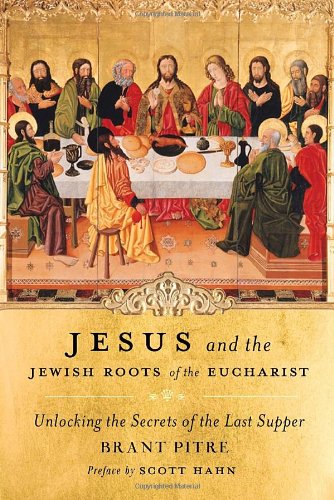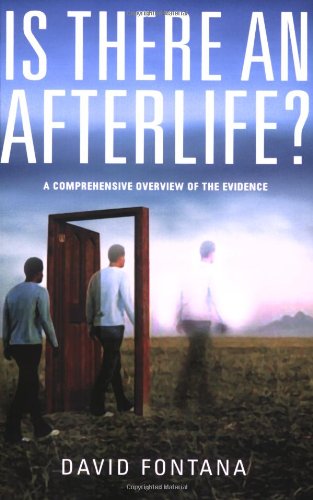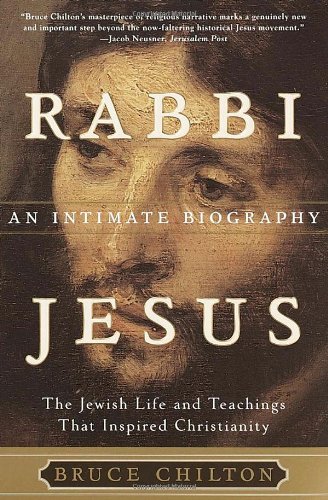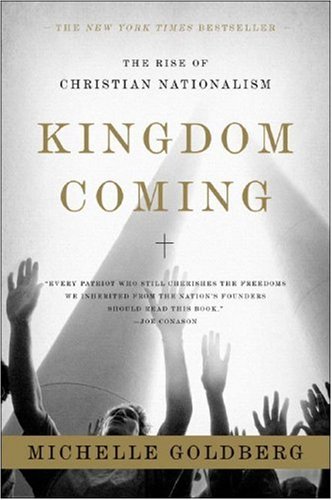Book review: Jesus and the Jewish Roots of the Eucharist
by Brant Pitre
★★★★★
Ever wonder how the Eucharistic teachings of the New Testament evolved? Where did Jesus get the idea for his Last Supper ritual? How did Paul think to tie this ritual to his theology of atonement? Why does John’s Gospel emphasize so strongly the Paschal Lamb? Why were the church fathers so adamant about tying the Eucharist to the Passover?
Because the Sacraments have deep Hebrew roots. I have studied a little about the pagan influences on the ceremony of bread and wine, this concept of “eating the body” and “drinking the blood,” but never delved much into its Hebrew side … other than to imagine how bizarre it must have appeared to God-fearing Jews, who had been taught since childhood never to ingest blood. Pitre digs into scripture and Judaic writings, and his research is fresh, scholarly, and easy to digest. If I can find more Pitre books, I’m going to snap them up.
Absolutely fascinating, and critical to Pitre’s conclusion, is a chapter in his book about the “shewbread” (showbread), what Pitre calls the “Bread of the Presence.” This bread, kept fresh in the Holy of Holies at the back of the Temple, shares a table with the libation flask, and thus links to the wine offering. Judaism has long connected the bread and the wine, back to the days of the very first priest, Melchizedek. But this holy bread carries with it a certain symbolism, understood by every Jew each time it was carried out for their viewing at the major festivals. Jesus references this “Bread of the Presence” (the presence of God, if you haven’t already guessed) directly in the Gospels, and it forms an important basis for understanding Jesus’ teaching at the Last Supper.
One interesting conclusion Pitre reaches is that Jesus never finished the Passover meal with his disciples! The fourth and final cup of wine, which each participating Jew shared during the Passover celebration, was never drunk. Instead, Jesus drank this final cup just moments before his death. Pitre thus brings the theological meaning of Jesus’ timing to life in a most intriguing way.
Pitre writes from a conservative Catholic perspective, as seems appropriate. (I’m no scholar of current-day religious practices, but who finds more ritualistic meaning in the Eucharist than the Catholics?) He does lean toward a Roman Catholic understanding of the bread and wine, though he avoids the word “transubstantiation” in favor of the baggage-free phrase “reality of Jesus’ presence in the Eucharist.” But I guarantee Christians of all denominations will enjoy this one.

John 13:5, The Johannine Passover
After that, he poured water into a basin and began to wash his disciples’ feet, drying them with the towel that was wrapped around him.
//I’ve mentioned in multiple posts how, in John’s Gospel, Jesus dies before the Passover, and thus does not share a Passover meal with his disciples. But this is not quite true. While Jesus does, indeed, die the afternoon before the Passover begins, there is still a Passover ritual of sorts. It’s just spiritual, not literal.
The setting of today’s verse seems to be a Johannine version of the “Last Supper,” which verse 15:1 explains occurs before the Passover. The Last Supper is not a Passover meal in this Gospel.
In John, Jesus interrupts the evening supper, his final meal with the apostles, to perform a foot-washing ritual. What’s interesting about this is that a ritual washing of hands is part of the Passover ceremony. One of the family members brings a water bowl and towel to each person, and pours water over their hands in purification. It occurs before the meal, not during, and Jesus has transposed this from hand-washing to foot-washing. But are we supposed to recognize the parallel to the Passover ritual? Let’s go on with the story.
John, the beloved disciple reclines on Jesus’ breast, just as the youngest member of the household often reclines on the leader of the Passover celebration. As the Passover appetizers are shared, this child begins to ask rehearsed questions, prompting the lesson of the Passover. In our case, Jesus has just shared with them the news that he would be betrayed. So, John, probably the youngest, asks questions. Verse 25: Leaning back against Jesus, he asked him, “Lord, who is it?”
The Passover parallel continues. Shortly after the time of questions and the sharing of a cup of redemption, Matzah is dipped in bitter horseradish. According to revered first-century rabbi Hillel, enough of the bitter herb should be taken to bring tears to the eyes. Verse 26: Jesus answered, “It is the one to whom I will give this piece of bread when I have dipped it in the dish.” Then, dipping the piece of bread, he gave it to Judas Iscariot, son of Simon.
Immediately after this Passover ritual, one or more members are supposed to be dispatched to serve the meal: the Passover lamb. So, in verse 27: As soon as Judas took the bread, Satan entered into him. “What you are about to do, do quickly,” Jesus told him.
Can you guess what happens next? Who the Passover lamb is? Aw, I think you already know.
Book review: Is There An Afterlife?
by David Fontana
★★★
“There is no doubt in my mind,” says Fontana, “that the question of whether or not we live after death is by far the most important that faces us.” Surely we are more than merely biological accidents with nothing more to motivate us beyond the struggle to remain alive. Luckily, the back cover promises, “After reading [this book] and assessing the evidence, there can no longer be any doubt that there is life after death.”
As far as I’m aware, this is the most exhaustive study ever on the afterlife. 496 large-size, small-print pages. The sheer volume of evidence would appear overwhelming, except that the majority of the book is about mediumship. I was a bit disappointed in this focus, but Fontana lists “Professor of Transpersonal Psychology,” “Vice President of the Society for Psychical Research,” and “Fellow of the British Psychological Society” among his credentials, so his primary focus should come as no surprise.
There are other topics, including apparitions, hauntings, near-death experiences, out-of-body experiences, and studies of reincarnation, but they receive comparatively little attention. One chapter summarizes the findings of what the afterlife must be like; whether we will sleep, enjoy sex, become wiser, retain our individuality, interests, memories … if you’re curious, Fontana concludes that in the afterlife you’re going to be pretty much the same person as you were in this life.
Overall, I found the book unconvincing, but I’ll try to include some reviews shortly of other books on the topic that I found more fascinating.

Matthew 6:11, Our Daily Bread
Give us this day our daily bread.
//The “Our Father,” or the “Lord’s Prayer,” may be the most memorized of all scripture. Millions repeat this uplifting prayer of Jesus on a daily basis. But do you know what it is you’re praying for as you speak these words?
The story begins back in Exodus. When the Children of Israel escaped from Egypt, they grew hungry, and God fed them with miracle food. Manna. Daily bread from heaven, the “food of angels.” So impressive was this daily bread that Jews began to yearn for the bread of angels again. Many of the rabbis taught that in the age to come, what they called the “Messianic age,” God would again provide bread from heaven. No one would ever go hungry.
One day, Jesus fed a multitude with loaves and fishes, but they weren’t satisfied. They begged for another miracle; they reminded Jesus that their fathers ate manna from heaven. This wish for the Messianic age to be ushered in with “angel food” was alive and well in Jesus’ day.
Now we come to this prayer of Jesus. Give us this day our epiousios bread. The Greek word epiousios is what scholars call a neologism (a “new word”). It occurs for the first time here in the Lord’s Prayer. This makes it very difficult for scholars to determine exactly what was meant.
Some suggest the word means “for the current time.” Others interpret it as “for the coming” day. Still others read it as “for existence.” But if you break the word up into its two main parts, epi means “above,” and ousia means “substance.” Putting them together renders something akin to “supernatural substance.” It is, I believe, a direct reference to the end-of-days anticipation of divine food, the daily provision from God, that we may live forever.
Christians who utter this prayer are begging for the beginning of the era of God’s rule, when all people will live in harmony and all will be filled. This is further made clear by the request, “thy Kingdom come.”
Book review: Ashen Sky: The Letters of Pliny the Younger on the Eruption of Vesuvius
Illustrated by Barry Moser
★★★★
Here’s an interpretation of the two letters of Pliny the Younger to Tacitus, about the eruption of Mount Vesuvius in 79 C.E. Black-and-white wood engravings by artist Barry Moser illustrate the grotesque images described in Pliny’s letters. Moser’s engravings have illustrated more than a hundred books, including Moby Dick and Alice in Wonderland.
Ashen Sky is a good title. Ash from Mount Vesuvius’ eruption in Italy spread to Egypt, Syria, and Africa, spreading pestilence. Two cities at its base, Pompeii and Herculaneum, were completely buried in ash and lost to history … finally uncovered 1,800 years later by a chance archaeological discovery.
Readers of my book about Revelation will immediately recognize the connection of Mount Vesuvius to my religious book blog. Its eruption eerily mimics the description of fire and brimstone torment in the book of Revelation, and many Bible scholars surmise that the image must have burned itself permanently into the mind of Revelation’s author. Read especially chapter eight, about the seven trumpets.
It’s hard to overestimate the cosmic importance of this event; an eruption of this magnitude happens somewhere on earth about once every 1,000 years. If parts of Revelation begin to sound like the ravings of a madman with a fist full of prophetic scriptures to explain, we can surely pardon its author. So if you’re curious about Revelation’s inspiration and wish to read the letters of Pliny the Younger, you may as well choose a fun picture book to read.

Proverbs 15:3, Don’t make me come down there!
The eyes of the LORD are everywhere, keeping watch on the wicked and the good.
//God’s omniscience is a matter all Christians understand. From a little child, we’re taught that God is watching us. Neither is there any creature that is not manifest in his sight, promises the book of Hebrews. But when did God develop this omniscience?
You might remember God playing hide-and-seek with Adam and Eve in the garden. “Where art thou?” God asked. No omniscience yet. Or the little plea bargain Abraham had with God. God was about to destroy Sodom because of their wickedness. Says God, “I will go down now, and see whether they have done altogether according to the cry of it, which is come unto me; and if not, I will know.” Abraham says, “but what if you find fifty righteous men? Will you still destroy the city?” God says, “if I find fifty there, I won’t destroy the city.” It goes on, God promising he’ll count carefully when he gets down there.
We can’t expect God to notice everything that happens down here, can we? In Hosea 8:4, God confesses, “They have set up kings, but not by me: they have made princes, and I knew it not.” Still no omniscience.
But things have changed since then. My advice: Don’t count on your sins going unnoticed anymore. Just as a young mother begins to grow eyes in the back of her head, God has over time developed the same skill.
Got an opinion? 0 commentsBook review: Rabbi Jesus, An Intimate Biography
by Bruce Chilton
★★★★
Definitely one of my favorite authors. I believe he’s the one who called my most-studied scripture, Revelation, a “perfectly rancid book.” But I forgive him; I think that quote sets the tone for his book about the practical, historical Jesus in 180-degree contrast to the bloody warrior image some Jews & Christians wished of their Messiah.
Chilton is a great story-teller, and his writing immerses us in the world of Jesus. Temple procedures and the Roman Empire come alive. Chilton knows his stuff. Do be aware, however, that he makes up his own caricature of Jesus–a caricature that more closely resembles the popular Buddha in looks and practices than the popular Jesus. It’s a fill-in-the-gaps series of best guesses. I’m sure Chilton would be the first to admit he has flavored the image of Jesus somewhat for our reading pleasure. For example, Jesus grows fat because he’s known to enjoy a good meal.
Chilton’s Jesus is a bitter-but-lovable dreamer who begins to believe his ambitions are God-ordained. Though he ultimately fails in his reformation of the Temple and transformative vision for Judaism, he does accomplish a splinter movement which grew rapidly in the second century, and his legend lives on and continues to inspire, adding meaning to our lives two millennia later.
If Chilton does have a spiritual agenda in writing, it’s a commendable one. The Epilogue states,
“The rabbi from Nazareth never claimed he was unique. His Abba was the Abba of all. His teaching, purifying, exorcism, healing, prayers, signs, meals, and sacrifices were not for himself alone, nor were they intended to demonstrate his personal power or bring him adulation for his attributes or accomplishments. All his work was undertaken to open the gate of heaven so that Israel might enter before the Throne of God.
Far too much theology has been preoccupied with closing that gate. By exalting Jesus as the only human being to sit on the right hand of God, many theologians have denied heaven to others. They remind me of Jesus’ complaint about some Pharisees, who used the key of knowledge to shut God’s Kingdom to those of lesser learning.”

John 1:18, God the Son
No man hath seen God at any time; the only begotten Son, which is in the bosom of the Father, he hath declared him.
//Today’s verse is a sticky one, very difficult to translate … but incredibly important. At the crux of this interpretation may be a question that Christians have argued about for two millennia: Is Jesus God?
The ESV translation highlights the difficulty in this passage with a straightforward interpretation: “No one has ever seen God; the only God, who is at the Father’s side, he has made him known.” Huh? Only God has ever seen God?
All translations agree from the verse’s context that John is talking about Jesus. The KJV, shown above, renders Jesus as the “only begotten Son.” But let’s look at some other translations, which are admittedly evangelical. The NLT reads, “No one has ever seen God. But the unique One, who is himself God, is near to the Father’s heart. He has revealed God to us.” The NIV reads, “No one has ever seen God, but God the One and Only, who is at the Father’s side, has made him known.” But have these translations taken extra liberty, reading into the text a divine claim for Jesus that doesn’t belong?
The NRSV edition prides itself on its unbiased translation, including interfaith contributors on its translation committee. Shall we get its opinion? “No one has ever seen God. It is God the only Son, who is close to the Father’s heart, who has made him known.”
How often I’ve heard non-Trinitarians preach that the Bible talks about “God the Father,” but never “God the Son.” Perhaps they’re wrong.
Got an opinion? 0 commentsBook review: Kingdom Coming
by Michelle Goldberg
★★★★★
Goldberg, a secular Jew, provides a hard-nosed look at the agendas and power of ultra-conservative Christian organizations in the United States. Goldberg calls this trend “Christian Nationalism,” after the openly-stated goal of many fundamentalist leaders to “take back America.” From, of course, the gays, the morally decadent (such as distributors of birth control), the Darwin-lovers, and the unpatriotic atheists who believe in separation of church and state.
Goldberg comes on strong and occasionally a bit sarcastic—for example, she bemoans the way Intelligent Design proponents have flaunted academic degrees to present their theories as “something more respectable than creationism in drag”—but her anti-fundamentalist rhetoric may not be overstated at all. Her research exposes the very real underground motives of the religious right, who feel bound by their beliefs to combat a spiritually bankrupt nation. There’s no greater motivation than the conviction that one is following God’s explicit orders.
“Dominion theologians” nationwide take Genesis 1:26-28 (where God tells Adam to assume dominion of the world) as scriptural direction for Christians to assume control by divine right. The Christian duty is to seize it. Evangelists with crazed followings preach that the separation between religion and politics is “what Satan likes most,” and call for a regime that will clean up the “dung-eating dogs” (gays). Jews better repent, too, since the holocaust God planned didn’t seem to get through to them. But more dangerous than these extremists are the everyday right-wingers who are raised to carefully infiltrate government and the Judicial bench for the good of Christ, so that that our nation can be set right … so that we can quit handing out condoms, quit treating gays like they’re equals, quit pretending evolution is more scientific than creationism. Under President Bush’s lead, government grant money by the millions poured into these agendas. The back cover promises a “witty, funny” read, but I couldn’t laugh. Religion-gone-bad is jaw-droppingly frightening, and this is a hard book to put down.
Goldberg calls for action. She explains that “the anxieties that underlay Christian nationalism’s appeal—fears about social breakdown, marital instability, and cultural decline—are real. They should be acknowledged and, whenever possible, addressed. But as long as the movement aims at the destruction of secular society and the political enforcement of its theology, it has to be battled, not comforted and appeased.”

Colossians 1:15, Jesus, the Firstborn
He is the image of the invisible God, the firstborn over all creation.
//Does this verse mean that Jesus wasn’t born at the start of the first century, but at the beginning of creation? Does it mean that since Jesus was born, he did not exist eternally … but was part of the creation? Does it mean that since Jesus is the firstborn, there are other siblings?
Perhaps it means those things, but in actuality, you can’t read a literal definition into the word “firstborn,” as used in this sense. It simply doesn’t mean what it sounds like it means … not in the Bible.
For example, Ephraim is called the Lord’s firstborn (Jeremiah 31:9) even though Manasseh was born first. David is called the Lord’s “firstborn” (Psalm 89:27) even though he was the youngest of Jesse’s sons.
“Firstborn,” as least as it relates to God’s chosen people, means simply preeminence; the one God has chosen to uplift.
Got an opinion? 0 comments















 354 Circles
354 Circles
 603 Goodreads Friends & Fans
603 Goodreads Friends & Fans

 Hello! I'm an author, historical Jesus scholar, book reviewer, and liberal Christian, which means I appreciate and attempt to exercise the humanitarian teachings of Jesus without getting hung up on any particular supernatural or religious beliefs.
The Bible is a magnificent book that has inspired and spiritually fed generations for thousands of years, and each new century seems to bring a deeper understanding of life’s purpose. This is true of not only Christianity; through the years, our age-old religions are slowly transforming from superstitious rituals into humanitarian philosophies. In short, we are growing up, and I am thrilled to be riding the wave.
I avidly read all thought-provoking religion titles. New authors: I'd love to read and review your book!
Hello! I'm an author, historical Jesus scholar, book reviewer, and liberal Christian, which means I appreciate and attempt to exercise the humanitarian teachings of Jesus without getting hung up on any particular supernatural or religious beliefs.
The Bible is a magnificent book that has inspired and spiritually fed generations for thousands of years, and each new century seems to bring a deeper understanding of life’s purpose. This is true of not only Christianity; through the years, our age-old religions are slowly transforming from superstitious rituals into humanitarian philosophies. In short, we are growing up, and I am thrilled to be riding the wave.
I avidly read all thought-provoking religion titles. New authors: I'd love to read and review your book!
 Hi! While Lee writes the articles and reviews the books, I edit, organize, and maintain the blog. The views expressed here are Lee's but I'm his biggest supporter! :-)
Hi! While Lee writes the articles and reviews the books, I edit, organize, and maintain the blog. The views expressed here are Lee's but I'm his biggest supporter! :-)
Connect With Me!